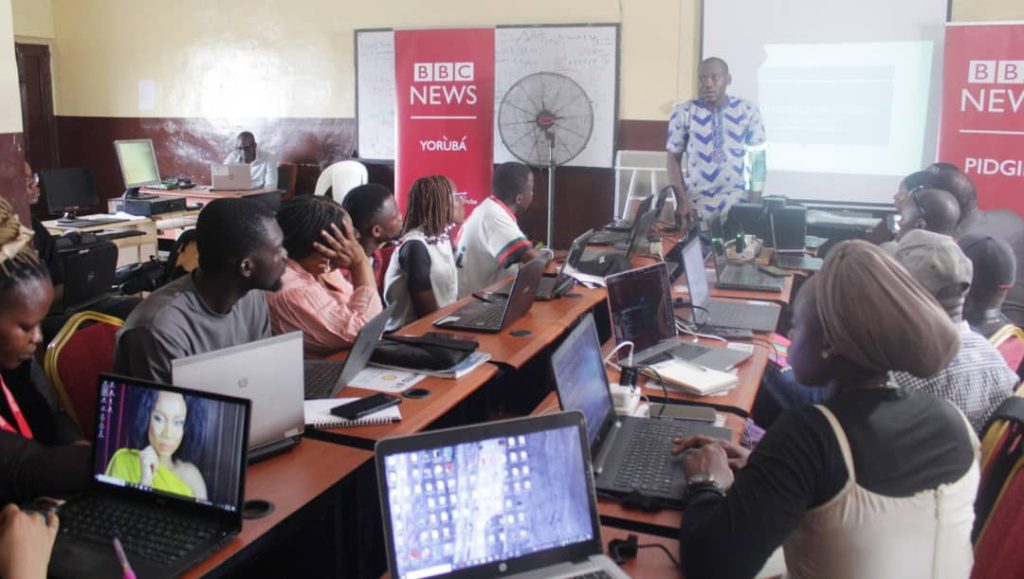No less than 20 students of the Nigerian Institute of Journalism (NIJ) received training on Forensic Journalism and open-source intelligence from officials of the British Broadcasting Corporation (BBC).
The one-day training, which took place on Tuesday, April 30th, at the institution’s ICT room, featured a one-hour webinar and hands-on practical exercise by two facilitators from the global broadcasting network.
It was coordinated by Mr. Moseph Ekine, Editor at BBC Pidgin and Mr. Chiagozie Nwanonu, Senior Journalist at BBC Global Disinformation Unit.
The 60-minute webinar was a presentation streamed live from the United Kingdom where the students learned about BBC Anatomy of a Killing, Anatomy of a Building, other investigative cases, and how to match storytelling with Open Source Intelligence (OSINT).
In the practical session, the students were trained on how to use various open-source tools in image verification, source tracing, language detector and translation, location tracking, and satellite feeds to fact-check information provided by sources.
According to Mr Ekine, being armed with the knowledge of these practices will give the students an edge in information gathering and equip them to report factual stories, especially in the present era of fake news peddling and Artificial Intelligence (AI) manipulation.
“Sometimes pictures can be doctored. Some people are very good at manipulating videos and images and circulating them for propaganda. But how do we come in as journalists to be able to separate facts from lies without feeding bias? That’s what this training is all about.
“You will be equipped with how to use open-source software that is readily available and can be assessed even while you’re in your bedroom to verify the source of images and videos before publishing your stories,” Mr. Ekine explained.
While training the students on using satellite maps to track the location of pictures and images, Mr. Chiagozie emphasised that this part of journalism requires patience and skills. He urged them always to use the tools and methods of verifying news before calling it fact, even when it’s being published on social media.
Reacting to the training, NIJ Provost, Mr. Gbenga Adefaye, who was present to witness the entire exercise, appreciated the facilitators and noted that NIJ remains committed to making available to students such hands-on capacity-building experience.
According to the NIJ boss, “I was in the newspaper [publication as a profession] for 27 years. I was hiring people and firing people for 25 years. This is because we hire based on what you can do, not your certificate. So the biggest advantage of coming to school in NIJ is that you have like a closet training.”
He told the students that what they’ve been exposed to in the session is what editors of big publications in Nigeria would gladly pay for to be taught.
On his part, the Deputy Provost, Dr. Boye Ola, while appreciating the facilitators, encouraged students to see the training as a seed that needs to be watered through practice.
“Our institution is the only one in Nigeria selected for this training. This programme is also happening in other parts of the world,” Dr. Ola added.

